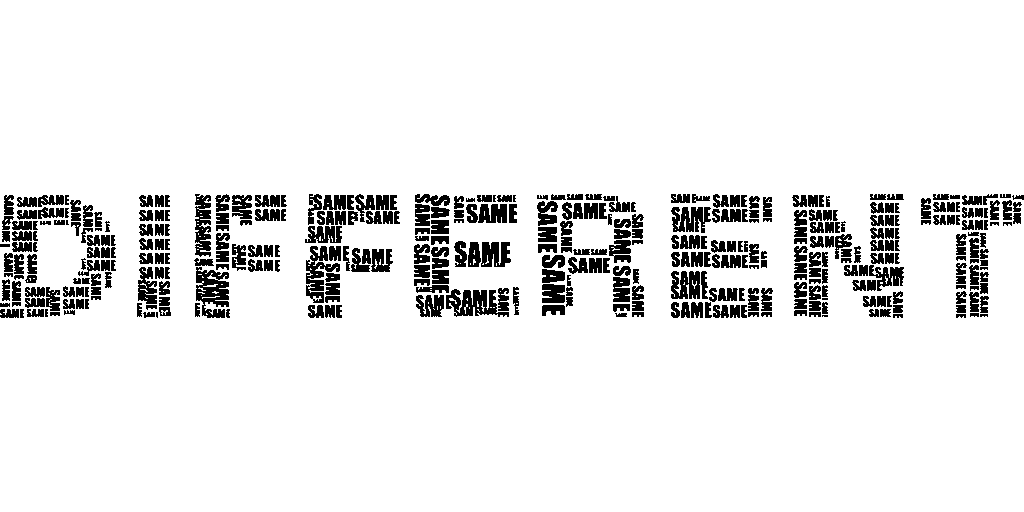
In the highly charged arena of cable news, few figures ignite debate quite like Jessica Tarlov, the resident Democrat on Fox News’ popular show, “The Five.” Known for her sharp intellect and an unwavering progressive viewpoint, Tarlov has become a lightning rod, consistently at the epicenter of political storms. Her role, which often places her in direct opposition to her conservative co-hosts, ensures that her every word is scrutinized, dissected, and frequently amplified across social media, leading to both fervent support and intense backlash.
Today, the truth about Jessica Tarlov feels like it’s constantly tumbling out, a rapid succession of controversies and critiques that paint a complex picture of a commentator navigating an increasingly polarized media landscape. From highly personal attacks questioning her integrity to explosive on-air confrontations and deep dives into the inherent misogyny faced by women in the public eye, her journey reflects the volatile nature of modern political discourse. This article will peel back the layers, examining the significant incidents and underlying dynamics that define Jessica Tarlov’s remarkable, and often embattled, presence in media.
Her career trajectory from a keen academic to a prominent television personality has positioned her uniquely to challenge conventional narratives, but it has also subjected her to unprecedented levels of public and personal criticism. As we explore the various facets of her public life, it becomes clear that Tarlov is more than just a political pundit; she is a symbol of the intense ideological battles being waged daily, both on and off our screens, and a potent example of how deeply personal these conflicts can become, especially for women in such visible roles.
1. **The Infidelity Accusation and Tarlov’s Response**
Jessica Tarlov found herself thrust into a deeply personal controversy recently when a post on X, from an account named “Bad Hombre,” leveled a serious accusation against her character. The post alleged, “Jessica slept with her current husband (right) while still married to her first husband (left),” accompanied by a photograph of Tarlov with her husband, Brian McKenna, and one of their two children. This kind of attack, reaching into the most private aspects of a public figure’s life, quickly gained traction, forcing Tarlov to address it head-on.
Tarlov’s response was swift and direct, though laced with a touch of her characteristic wit. “Lollll absolutely not true,” she wrote, dismissing the claim outright. Yet, even in her refutation, she acknowledged an unexpected courtesy from her attacker, adding, “But appreciate [you] covering my baby’s face – respectful even as you spread a disgusting lie.” This measured, yet firm, rebuttal highlighted the insidious nature of online disinformation campaigns, which often blend inflammatory falsehoods with superficial gestures of decorum.
This personal assault did not emerge in a vacuum. It followed a period of intense right-wing backlash directed at Tarlov after she publicly challenged the Republican Party’s purported commitment to “family values.” Her critique, born from a political observation, quickly spiraled into highly personal attacks, demonstrating how quickly ideological disagreements can morph into character assassinations, especially when directed at women in prominent positions. The incident underscored the vulnerability of public figures to unverified claims propagated through social media, a challenge that remains a persistent feature of contemporary discourse.
2. **Critique of GOP “Family Values” Hypocrisy**
The genesis of many of the personal attacks against Jessica Tarlov can be traced back to her outspoken critiques of political hypocrisy, particularly concerning the Republican Party’s stance on “family values.” On a Thursday, Tarlov called out the GOP on X, taking aim at their messaging after news broke that Texas state Sen. Angela Paxton, a Republican, had filed for divorce from Texas Attorney General Ken Paxton. This filing, Angela Paxton stated, was made after nearly four decades of marriage on “biblical grounds” and in light of “recent discoveries,” implying deeply personal reasons.
Tarlov’s critique, delivered as a political commentator, specifically suggested that the Republican Party’s consistent championing of “family values” was demonstrably riddled with hypocrisy. This was particularly pertinent given that Ken Paxton, who is currently campaigning in the Republican primary for a U.S. Senate seat, had previously been accused of having an affair with a donor’s employee during his 2023 state impeachment trial, from which he was eventually acquitted of corruption charges. Tarlov seized on this juxtaposition, arguing that the party’s public moralizing often conflicted with the private conduct of its prominent members.
Her challenge, intended as a political commentary on perceived inconsistency, unfortunately, sparked a wave of crude, misogynistic, and derogatory personal attacks directed at her. X users responded to the liberal Fox News host with intensely disparaging remarks, calling her a “cheating whore,” a “ho,” and a “home wrecker,” among other slurs. This immediate and vitriolic reaction underscored a pattern: for women in the public eye, political commentary often invites intensely gendered and sexualized backlash, diverting from the substance of their arguments to impugn their personal morality.

3. **The Gendered Nature of Attacks on Women in Public Life**
Beyond the specific incidents, the attacks on Jessica Tarlov illuminate a broader, systemic issue: the deeply gendered ways in which women in the public eye are often targeted. Hallie Kritsas, a licensed mental health counselor and therapist with Thriveworks, specializing in self-esteem, offered a keen insight into this phenomenon. Kritsas told HuffPost that the attacks on Tarlov serve as a “clear example of how women in the public eye, especially in politics or commentary, are often targeted in deeply gendered ways.” This observation highlights that the vitriol directed at Tarlov is not merely about her political views, but also fundamentally tied to her identity as an outspoken woman.
Kritsas elaborated on this dynamic, explaining, “For women, especially those who are outspoken, often others undermine their credibility through personal or sexualized attacks.” This strategy effectively shifts the focus away from the merits of a woman’s arguments or criticisms and instead attempts to discredit her by questioning her morality, loyalty, or sexual conduct. Such attacks are designed to shame, control, and silence, rather than to engage in legitimate intellectual debate. The public nature of these assaults, particularly on platforms like X, intensifies their impact, turning individual commentators into symbols of broader cultural anxieties.
This pattern is a stark reminder that while men in public roles may face fierce criticism for their political actions, women are frequently subjected to an additional layer of personal, often sexualized, scrutiny. The very act of being a visible, assertive woman in a traditionally male-dominated field can trigger a backlash that seeks to reduce her to stereotypes and undermine her professional authority. Tarlov’s experiences, therefore, are not isolated incidents but rather symptomatic of a pervasive issue in how society, and particularly online communities, engages with and attempts to control powerful female voices.
Read more about: Unmasking the Myths: Why Society Keeps Getting Duped About What it Means to Be a Woman
4. **Societal Double Standards on Infidelity for Men and Women**
Further deepening the analysis of the attacks on Jessica Tarlov, Hallie Kritsas highlighted a persistent and deeply rooted societal double standard regarding infidelity. Kritsas stated that attacking women for being unfaithful in their relationships—regardless of the truth of the accusations—or criticizing them for having multiple sexual partners, is a common line of attack that is “deeply misogynistic.” This tactic, she explained, does little to reveal actual truth and serves primarily to reinforce entrenched gendered power dynamics, punishing women for their autonomy or any perceived independence.
Kritsas emphasized that society tends to be significantly harsher on women for both actual and perceived infidelity. This disparity extends even to unfounded accusations, where women can still face “intense judgment and shame in ways that men typically do not.” Culturally, there is an expectation that women are to serve as “the emotional and moral anchors in relationships” and are anticipated to be loyal and nurturing. Consequently, when women are seen to “deviate” from these prescribed roles, it often triggers a severe societal backlash, rooted in these deeply ingrained gender norms.
In stark contrast, Kritsas explained that instances of infidelity involving men tend to be “downplayed” or “normalized.” This imbalance in expectations is a direct consequence of a double standard originating from longstanding gender norms and patriarchal ideas, which inextricably link a woman’s value to her sexual behavior and loyalty. This unequal scrutiny reflects a broader societal desire to control women’s bodies and their personal choices, making Tarlov’s experience with infidelity accusations a pointed illustration of how these double standards continue to operate in the public sphere, attempting to discredit her professional standing through attacks on her perceived private conduct.
Read more about: Beyond the Myth: Unearthing the Tragic True Story of Mama Cass Elliot’s Final Days

5. **Jessica Tarlov’s Academic and Professional Background**
To fully understand Jessica Tarlov’s contentious position in media, it is crucial to appreciate her formidable academic and professional background, which underpins her often combative style. Born in 1984 in New York City, Tarlov grew up in the creative environment of Tribeca, with a screenwriter mother and a film producer father. This upbringing likely instilled in her an early appreciation for narrative and communication, albeit in a different context. Her educational journey, however, diverged significantly into the rigorous world of political science.
Tarlov pursued her undergraduate studies at Bryn Mawr College, an institution renowned for its strong academic tradition. Following her time there, she moved across the Atlantic, heading to London to further her education at the prestigious London School of Economics (LSE). At LSE, she earned both a master’s degree and a PhD in political science, demonstrating a deep commitment to and expertise in the intricacies of political theory and practice. These “serious academic chops” provide the intellectual foundation for her arguments, often supported by data and polls.
Her entry into the realm of cable news began around 2014 when she started appearing on Fox News as a guest. Initially, she brought her sharp Democratic perspective to various shows, including “Hannity” and “The Five.” Her incisive commentary and willingness to engage in robust debate evidently resonated, as by 2022, she ascended to the role of a permanent co-host on “The Five,” Fox News’ top-rated daytime program. In this capacity, she actively strategizes for the Democrats while frequently clashing with the panel’s conservative voices, a role that has made her both influential and controversial, continuously citing data and polls to buttress her progressive policy defenses.
Read more about: Gutfeld’s Unfiltered Firestorm: Exposing the Left’s ‘Both Sides’ Fallacy After Charlie Kirk’s Assassination
6. **Her Role as the “Token Liberal” on Fox News’ “The Five”**
Jessica Tarlov’s position on “The Five” is often described as that of the “token liberal,” a role that inherently places her in a challenging and frequently confrontational dynamic. This roundtable format thrives on conflict, featuring debates on hot topics with prominent conservative hosts such as Jesse Watters and Greg Gutfeld, as well as guests like Kayleigh McEnany. Tarlov is decidedly “no shrinking violet”; she is known for her assertive style, often interrupting, waving her hands, and even pounding the desk to emphatically make her point, ensuring her liberal perspective is heard amidst the conservative consensus.
Each episode delves into current events, and Tarlov’s primary function is to counter conservative narratives across a spectrum of issues, from COVID policies to election integrity. In early 2025, for instance, her presence was particularly notable during ongoing vaccine debates under the new administration, especially after RFK Jr.’s Senate testimony stirred the waters. From the perspective of a long-time viewer, her benefits on the show are evident when she introduces fresh data that challenges prevailing assumptions, such as citing polls on public support for specific legislative bills. This provides a crucial counterpoint, helping viewers, particularly beginners in political discourse, understand how liberals frame and support their issues, thus offering a more complete spectrum of perspectives.
However, her combative style and the inherent friction of her role also present significant challenges. Tarlov frequently faces accusations of cherry-picking facts or outright misrepresentation. A notable instance occurred during a September 6 segment concerning COVID shots, where she was live fact-checked by McEnany. The panel reportedly felt like a “powder keg” as Tarlov’s frustration boiled over, leading her to yell about access being cut off, only to be corrected on air. These moments, while dramatic, underscore the precarious balance she maintains, attempting to bring a liberal viewpoint to a conservative audience, often leading to viral meltdowns that capture national attention and contribute to the ongoing perception of her as a polarizing figure.
7. **The Greg Gutfeld Confrontation over Charlie Kirk’s Assassination**
One of the most explosive confrontations involving Jessica Tarlov erupted on “The Five” following the assassination of Charlie Kirk, the conservative activist and founder of Turning Point USA. Kirk was gunned down on September 10, 2025, at a Utah college event, sending shockwaves through the nation and prompting widespread grief and speculation about political motives. During a discussion on the tragedy, Greg Gutfeld, a close friend of Kirk’s, questioned why political violence seemingly “only” stemmed from the left, a claim that mirrored sentiments from President Donald Trump and other administration officials.
Tarlov, attempting to inject a nuanced perspective and call for a de-escalation of rhetoric from “both sides,” made a critical interjection. She brought up the killing of Minnesota Democrat Melissa Hortman as an example of violence that could be attributed to the right. This comparison, in the raw emotional aftermath of Kirk’s death, struck a deeply discordant note with Gutfeld. He reacted with intense anger, yelling, “Don’t play that bullshit with me! We don’t care about your ‘both sides’ argument. That shit is dead!” He further accused her of rationalizing the tragedy and asserted that the media, by extension, had contributed to the animosity that led to Kirk’s death.
The exchange rapidly went mega-viral on X, drawing immense backlash from users who decried Tarlov as “vile,” demanded her firing from Fox News, and labeled her insensitive to conservative grief. The studio audience reportedly clapped for Gutfeld’s outburst, highlighting the raw emotion of the moment. While Tarlov clarified that she “no way intended at all to minimize what happened to Charlie” and was simply seeking “all of the information before you just say ‘They did this’,” her attempt at nuance was perceived as tone-deaf and deeply offensive in the highly charged atmosphere, further cementing her image as a controversial figure who often finds herself at odds with deeply held conservative sentiments, even in moments of collective mourning.
Read more about: Gutfeld’s Unfiltered Firestorm: Exposing the Left’s ‘Both Sides’ Fallacy After Charlie Kirk’s Assassination

8. **Jessica Tarlov’s Disputed Remarks on the Pence-Trump Funeral Interaction**
Jessica Tarlov, the liberal voice on Fox News’ “The Five,” ignited a significant media storm with her comments regarding an interaction—or lack thereof—between Karen Pence and Melania Trump at former President Jimmy Carter’s funeral. Tarlov controversially described this moment as one of her “favorite moments,” an assessment that quickly drew intense criticism and raised questions about her judgment. Her choice of words highlighted the political tensions she frequently addresses, even in solemn settings, further fueling the ongoing debate about appropriate commentary.
Tarlov’s remarks focused on Karen Pence’s apparent avoidance of eye contact or acknowledgment of Melania Trump, which Tarlov interpreted as a subtle snub reflecting the strained political history between the Pences and the Trumps. She controversially claimed, “She was head down, like, ‘If you think my husband should have been hanged for certifying the election results, I have no time for you,’” directly referencing an unverified claim from former White House aide Cassidy Hutchinson. This contentious and unsubstantiated claim about President Trump allegedly supporting violence against his vice president sparked immediate backlash.
The criticism against Tarlov intensified due to her reference to an unverified claim and her dismissive tone. Many accused her of spreading misleading narratives without factual foundation, underscoring how modern political discourse often amplifies unverified claims, further dividing public opinion. Her labeling the moment as “deranged” was also criticized as trivializing serious political divisions and overstepping her role in analyzing a private moment of grief. Social media responses were swift, accusing her comments of being rooted in political bias rather than genuine analysis.
This incident brought to light the ongoing tension between the Pences and the Trumps, a relationship that fractured significantly following January 6, 2021. While Mike Pence later adopted a more conciliatory tone regarding his interaction with Donald Trump at the funeral, Tarlov’s comments injected new life into the narrative of lingering animosity. This episode highlights the challenges public figures and commentators face in balancing analysis with respect, particularly when navigating the complex and often deeply personal intersections of politics and public mourning.
9. **The Volatile On-Air Clash with Veteran Joey Jones**
Jessica Tarlov faced another wave of controversy following a heated exchange with military analyst Joey Jones, a veteran who lost both his legs in Afghanistan. This incident, occurring on “The Five” during a discussion about a tragic church shooting in Minneapolis, sparked widespread outrage and renewed calls for her dismissal. It starkly exposed the fine line between assertive commentary and profound insensitivity, especially when addressing topics with individuals carrying deeply personal and painful experiences.
Jones began the discussion calmly, asserting that mental health, not gun ownership, was the core issue behind such violence. He critiqued the disparity in public discourse, noting, “Only four percent of guns used in homicides are rifles,” and argued that Democrats often exploit tragedies for political gain. His reasoned argument aimed to shift the focus from firearm regulation to underlying societal issues, grounded in a factual assessment of crime statistics and political motivations.
Tarlov’s response was immediate and emotionally charged. She interrupted Jones with a cutting remark: “If your kid was one of that four percent, I think you’d be singing a different tune.” This interjection, perceived as dismissive of Jones’s sacrifices, escalated the tension significantly. When Jones attempted to clarify, Tarlov slammed her hand on the table and retorted, “Oh, so lucky you!” The confrontation reached its peak when Tarlov, seemingly unfazed, added a jab about his amputations: “Well, now you’ve played the leg card, and I can say no more.”
This comment ignited a firestorm of outrage across social media, leading to calls for her termination and accusations of mocking a disabled veteran. Viewers felt her conduct undermined the gravity of the discussion and epitomized a problematic trend in televised discourse where personal attacks overshadow substantive debate. The backlash served as a potent reminder of the responsibility media personalities hold in fostering respectful dialogue, highlighting the thin line between critique and compassion in an increasingly polarized public sphere.
10. **The Cable News Apology and Self-Reflection on Misinformation**
Jessica Tarlov made a surprising public apology “to the entire world” for what she termed the misinformation that cable news “exports.” This candid admission occurred on the Prof G podcast, which she co-hosts with Scott Galloway, during a conversation with Larry Sabato, a respected political analyst. Her apology, coming from a prominent figure on a top-rated network, immediately drew attention and reignited discussions about the credibility of cable news and her own role within it.
The apology stemmed from Sabato’s critique of cable news, where he lamented how “TV funnels what’s selling on social media… That makes me rage.” Tarlov fully agreed with this assessment, acknowledging the negative interplay between traditional news and social media. Her statement, “As someone who’s on cable news, I apologize to the entire world for what we export,” underscored a rare moment of introspection from a typically combative figure, hinting at a systemic issue within the industry she represents.
While Tarlov didn’t elaborate on specific instances of misinformation, her acknowledgment pointed to a broader concern about the quality and impact of televised political discourse. This candid moment, reacting to criticisms often leveled against her profession, suggested an awareness of the challenges in a media landscape saturated with contentious information. It highlighted the complex, often conflicted role political commentators play, where their platforms can contribute to division even as they aim to inform.
This incident added another layer to the public’s perception of Tarlov, resonating with those who accuse cable news of fostering inaccuracies and division. It presented an unusual contrast to her typically confrontational on-air persona, contributing to the complex narrative surrounding her public image. Her remarks fueled ongoing debates about her credibility and continued presence on Fox News, showcasing an awareness of media’s impact while often being at the center of its exacerbation.
11. **Trump Crypto Claims and “Dying Leader” Debate**
Jessica Tarlov once again faced significant criticism during a segment on “The Five” for making unsubstantiated claims and attempting to steer a discussion away from a pressing political issue. The panel was discussing allegations of a Biden White House cover-up regarding the President’s cancer diagnosis. Tarlov, however, abruptly diverted the conversation to President Donald Trump’s crypto dinner, falsely claiming he made “40 percent of his wealth from cryptocurrency during his presidency,” an assertion that provoked immediate backlash.
Her spontaneous shift occurred when the conversation touched upon “a staggering level of corruption.” Tarlov used this as an opportunity to criticize Trump’s meme coin involvement, stating, “I just got to note, though that the staggering level of corruption from last night’s meme coin dinner.” Despite her co-panelists’ attempts to redirect, she doubled down, insisting, “I’m talking about who is corrupt and who is profiting off the American office,” attempting to equate her unverified claim with the serious allegations surrounding President Biden’s health.
Greg Gutfeld sharply challenged her diversion and the accuracy of her remarks, countering, “You’re defending an administration that covered up a dying leader and you’re sitting here going ‘but meme coin, meme coin.’” This retort emphasized the perceived irrelevance and misdirection of Tarlov’s argument compared to more substantive political scandals. The clash exemplified her tendency to introduce tangential or unverified information to counter conservative narratives, often leading to heated exchanges and accusations of factual misrepresentation.
The incident quickly escalated on social media, with calls for Fox News to fire Tarlov and critics lambasting her for false remarks. Such reactions underscore the intense scrutiny Tarlov faces, where her statements are dissected and amplified by a polarized online audience. This episode further solidifies her image as a polarizing figure whose commentary frequently generates controversy, highlighting the challenges of maintaining credibility while advocating a liberal viewpoint on a conservative network, consistently fueling ideological conflict.
12. **The “Russia Hoax Meltdown” Controversy**
Jessica Tarlov’s public record includes a significant incident in July, referred to as the “Russia hoax meltdown,” which intensified the scrutiny surrounding her public persona. This brief but impactful mention underscores how contentious past political narratives continue to fuel strong reactions to her commentary. Given that the “Russia hoax” narrative is viewed by many conservatives as a fabricated scandal, any forceful or emotional engagement by Tarlov on this topic inevitably places her at odds with her audience and co-hosts.
Such an event reinforces Tarlov’s image as a polarizing figure who frequently clashes with deeply held conservative sentiments. Her involvement in discussions around the “Russia hoax,” whether critiquing its origins or its political weaponization, is inherently controversial within the conservative media landscape. The public’s reaction to such a “meltdown” aligns with the pattern of swift backlash she regularly experiences, where her stance on divisive issues is magnified and interpreted through a partisan lens, contributing to the “built-up frustrations” she faces.
This incident, though not detailed extensively, highlights the volatile nature of political discourse and the challenges faced by commentators like Tarlov. It demonstrates how her every utterance on politically sensitive subjects can be scrutinized and amplified, contributing to her continuous presence in media storms. The “Russia hoax meltdown” serves as another example of how ideological disagreements rapidly escalate into personal attacks and calls for accountability, shaping her controversial journey in public life.

13. **The Deleted Tweet Controversy**
Among Jessica Tarlov’s social media missteps, a deleted tweet reportedly “defending an accused child predator in an immigration tweet” stands out, highlighting her susceptibility to severe public condemnation. Although specific details are limited, the nature of the accusation alone indicates an incident of extreme public sensitivity. Such a statement, even if quickly removed, would inevitably provoke strong moral and political backlash, underscoring the precariousness of a public figure’s online presence and the rapid spread of controversy.
The act of deleting the tweet itself suggests an acknowledgment of its problematic content or the intense negative reaction it generated. For a commentator in Tarlov’s position, any perceived minimization or excuse for serious crimes, particularly those involving children, would draw immediate and widespread criticism, fueling accusations of being “out of touch” or prone to misstatements. This contributes to the narrative of “built-up frustrations” directed at her and further cements her image as a lightning rod for ideological conflict.
This incident, though briefly mentioned, powerfully illustrates the immense pressure and scrutiny faced by prominent media personalities. In the hyper-connected digital age, a single ill-conceived remark can lead to lasting damage to one’s reputation and renewed calls for removal from public platforms. The deleted tweet controversy serves as a stark reminder of the constant vigilance required in public discourse, and how even a fleeting digital footprint can contribute to a commentator’s contentious public record.
Read more about: Uh Oh! These 10 Celebs, Critics, And Even Family Members Just Can’t Deal With Rachael Ray!

14. **The “Bikini Photo Backlash”**
Jessica Tarlov has also faced personal scrutiny extending beyond her political commentary, specifically enduring a “bikini photo backlash earlier this year.” This incident, highlighted as showing “how personal it gets” for public figures, underscores the pervasive gendered scrutiny that women in the media frequently encounter. While the specifics of the photo remain undisclosed, its mention signifies the tendency for accomplished professionals to have their personal lives and appearances subjected to intense and often misogynistic criticism.
This type of backlash is emblematic of a broader issue where a woman’s professional credibility is undermined through personal or sexualized attacks, rather than engaging with her intellectual contributions. It reflects persistent societal double standards, reducing female commentators to their physical appearance and punishing their autonomy or perceived independence. Such criticism diverts attention from substantive arguments, illustrating how intensely gendered and sexualized backlash can transform ideological disagreements into character assassinations.
The “bikini photo backlash” contributes to the complex and embattled public presence of Jessica Tarlov, demonstrating that criticism is not confined to her political arguments. It reinforces the idea that her public life is constantly under a microscope, where personal choices are weaponized to discredit her professional standing. This incident serves as a poignant example of the unique challenges faced by women in highly visible roles, where every aspect of their lives is susceptible to public dissection and condemnation.
As we’ve journeyed through the multifaceted public life of Jessica Tarlov, from her academic prowess to her role as a pivotal, often embattled, liberal voice on “The Five,” a clear picture emerges: she is a commentator perpetually navigating a minefield of controversy. Whether it’s dissecting political hypocrisy, enduring gendered personal attacks, clashing with co-hosts over national tragedies, or facing backlash for on-air misstatements and social media posts, Tarlov embodies the intense ideological battles of modern media. Her story is a testament to the unforgiving scrutiny faced by public figures, particularly women, in an era where every word is amplified, every nuance debated, and every perceived misstep can ignite a firestorm. Her consistent presence at the heart of these storms, however, also cements her position as a significant, albeit polarizing, force, pushing the boundaries of discourse and continually shaping the narrative around what it means to be an outspoken voice in a deeply divided America.












